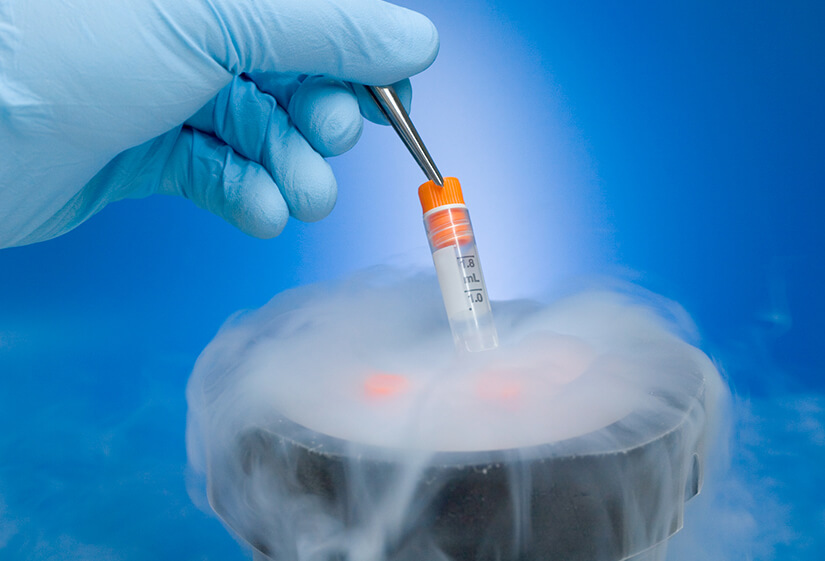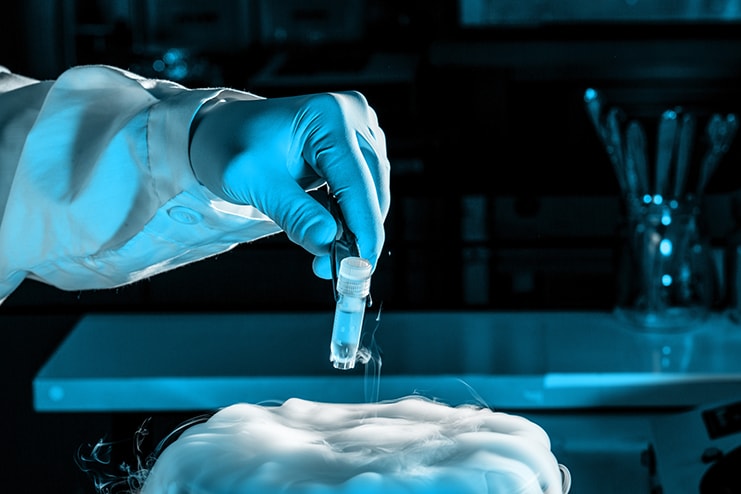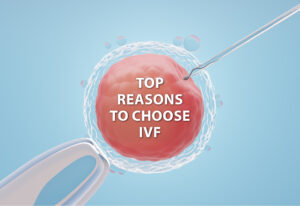Egg Freezing
Egg Freezing
Egg freezing, also known as oocyte cryopreservation, is an advanced fertility preservation technique that allows women to preserve their eggs for future use. Whether you’re delaying motherhood for personal, professional, or medical reasons, egg freezing provides a way to maintain your reproductive options. At TheFertilife, we offer this cutting-edge procedure to give women more control over their fertility, ensuring they have the opportunity to pursue pregnancy when the time is right for them.


What is Egg Freezing?
Egg freezing is the process of extracting a woman’s eggs, freezing them, and storing them for future use. When a woman is ready to have a child, the eggs can be thawed, fertilized with sperm (via IVF or ICSI), and implanted in the uterus.
Egg freezing is especially beneficial for women who want to delay childbirth due to factors like career, education, or finding the right partner. It also offers hope for women facing medical treatments (such as chemotherapy or radiation) that could impact their fertility.
Why Should You Consider Egg Freezing?
There are several reasons why a woman might choose to freeze her eggs:
Age-related Fertility Decline: A woman’s fertility declines as she gets older, particularly after the age of 35. Freezing eggs at a younger age, when egg quality is higher, provides more chances of success for future IVF treatments.
Career and Lifestyle Choices: Many women are choosing to focus on their education, career, or other life goals before starting a family. Egg freezing offers the flexibility to delay pregnancy without compromising fertility.
Medical Conditions and Treatments: Certain medical treatments, such as chemotherapy, radiation, or surgery, can damage a woman’s ovaries and reduce her fertility. Freezing eggs before treatment allows women to preserve their ability to have biological children in the future.
Premature Ovarian Failure: Some women experience early menopause or diminished ovarian reserve due to genetic conditions or unexplained factors. Egg freezing can offer a way to preserve fertility before a decline in egg quality.
Family Planning: Women who haven’t found the right partner or are uncertain about when to have children can preserve their fertility and have more flexibility when it comes to starting a family in the future.
How Does the Egg Freezing Process Work?
Egg freezing involves several important steps:
Ovarian Stimulation: The first step in egg freezing is stimulating the ovaries to produce multiple eggs. This is done through hormone injections over a 10-14 day period. The goal is to collect several eggs, which increases the chances of a successful pregnancy later.
Monitoring: During the stimulation cycle, your fertility specialist will monitor the development of the eggs through ultrasound and blood tests. This ensures that the ovaries are responding well to the hormones and that the eggs are maturing properly.
Egg Retrieval: Once the eggs are ready, a minor surgical procedure is performed to retrieve them. This is done under sedation or light anesthesia. A thin needle is inserted into the ovaries via the vaginal wall, and the eggs are carefully aspirated.
Freezing and Storage: The retrieved eggs are then frozen and stored at very low temperatures. They can remain frozen for years, preserving their quality until you are ready to use them.
Future Use: When you decide to have a baby, the frozen eggs can be thawed and fertilized with sperm using IVF or ICSI. The resulting embryos are then transferred to your uterus in hopes of achieving a successful pregnancy.
What Are the Success Rates of Egg Freezing?
The success of egg freezing largely depends on the age at which the eggs are frozen and the number of eggs retrieved. Women who freeze their eggs in their 20s or early 30s have the best chances of success, as egg quality and quantity tend to decline with age.
Age of the Woman: Younger women (under 35) generally have a higher chance of success with egg freezing, as their eggs are of higher quality and more likely to fertilize and result in a healthy pregnancy.
Number of Eggs Frozen: The more eggs that are retrieved, the better the chances of having a successful pregnancy in the future. Typically, fertility specialists aim to freeze around 10-20 mature eggs, as this offers a reasonable chance of successful fertilization and embryo transfer.
Thawing and Fertilization: While the technology for freezing and thawing eggs has improved significantly, the success of thawing and fertilization also plays a role in the overall success rates. The chances of success are generally better when using eggs frozen at a younger age.
What Are the Benefits of Egg Freezing?
Flexibility and Control: Egg freezing allows you to take control of your fertility, giving you the freedom to delay pregnancy while preserving your reproductive potential.
Preserving Egg Quality: Freezing eggs at a younger age ensures that you preserve your eggs when they are healthiest and most viable for fertilization.
Future Family Planning: Whether you’re uncertain about when to have children or need to undergo medical treatments that could affect your fertility, egg freezing offers a safeguard for future family planning.
Hope for Cancer Patients: Women undergoing cancer treatments like chemotherapy or radiation may have their fertility compromised. Freezing eggs before treatment provides an option to have biological children later.
What Are the Risks and Considerations?
While egg freezing is generally safe, it’s important to consider the following:
Cost: Egg freezing involves several stages, including ovarian stimulation, monitoring, egg retrieval, and storage. It can be a costly procedure, especially if you need multiple rounds to collect enough eggs.
Hormonal Side Effects: The ovarian stimulation process involves hormone injections, which can lead to side effects such as bloating, mood swings, and mild discomfort. Serious side effects, like ovarian hyperstimulation syndrome (OHSS), are rare but possible.
Success Rates: Egg freezing doesn’t guarantee future pregnancy. The chances of success depend on factors like age, egg quality, and the number of eggs retrieved.
Storage: Eggs can be stored for many years, but ongoing storage fees apply. Additionally, you’ll need to consider your future plans for using the frozen eggs.
Not a Guarantee: While egg freezing improves fertility options, there are no guarantees that a frozen egg will successfully fertilize or lead to a pregnancy.
Is Egg Freezing Right for You?
Egg freezing is a great option for women who wish to preserve their fertility for future use. If you are considering delaying pregnancy or are facing medical treatments that could impact your fertility, egg freezing gives you the flexibility to make family-building decisions on your own timeline.
At TheFertilife, our fertility experts provide personalized care to help you navigate the egg freezing process. We’re here to support you through every step, from ovarian stimulation to egg retrieval and long-term storage.

Best Infertility Doctor in Gurgaon, Dr. Anshika Lekhi, a renowned IVF specialist, offers exceptional infertility treatments.
Pages
Contact Us
- 7505 Basement Bougainville Street, near Supermart 2, Sector 43, Gurugram, Haryana 122009
- 98735 24270
- info@thefertilife.com
Updates
Check New updates below.


Copyright ©2025 | All Rights Reserved.
